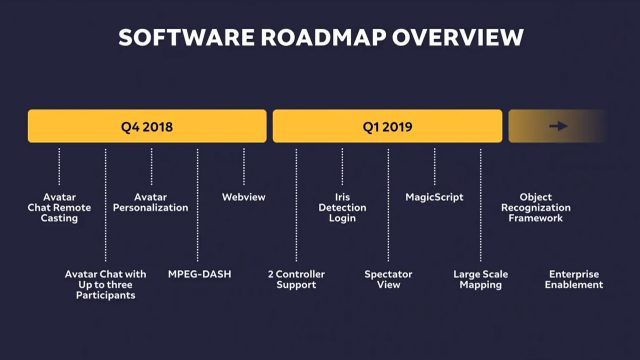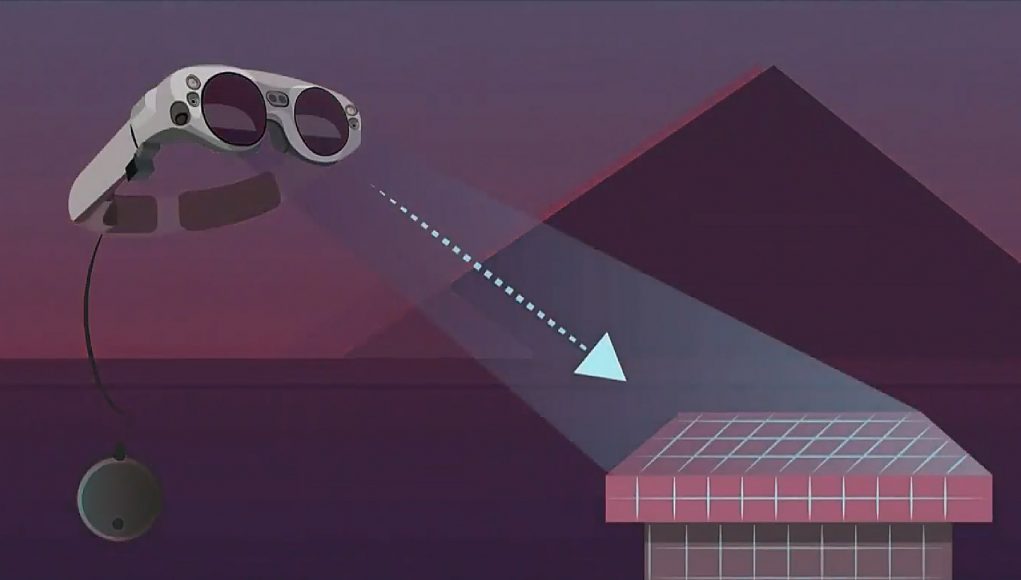Today at Leap Con, Magic Leap spoke briefly about its software roadmap for the end of 2018 and into early 2019, indicating some interesting new features on the way to their AR headset.
With the Magic Leap One headset having just recently launched, the company is continuing to rapidly evolve its operating system and features to achieve its vision of widespread spatial computing.
In a brief preview on stage during the Leap Con keynote, Magic Leap’s Senior Vice President of Software, Yannick Pellet, explored the company’s near-term software roadmap, revealing a some interesting features that developers can look forward to.

Expected in Q1 2019 are features like two controller support, giving developers the ability to make applications which use a pair or the headset’s 6DOF controllers rather than just one. This will allow developers to give their users more control over applications, and importantly, it’ll more closely mirror the dual controller input capability that many developers have become used to with high-end VR headsets. This could be a challenge as the Magic Leap One controller is based on magnetic tracking, and introducing another active magnetic device could make things complicated.
Also on the roadmap is ‘Iris Detection Login’, a biometric login technique using the headset’s eye-tracking tech to uniquely identify each user who puts the headset on. This could act as a biometric lock for the device (nice to have considering the price tag), or it could be used to identify each user and load up their personal profile automatically without any special login credentials.
Magic Leap One’s core software is called LuminOS, and the company says they’ll be deploying MagicScript in Q1 2019, which will bring Javascript compatibility to the OS. That means Javascript developers can write native code to run on Magic Leap One.
The roadmap also promises ‘Large Scale Mapping’. While Pellet didn’t go into detail, presumably this means allowing the device to map and understand spaces larger than individual rooms. That could allow developers to build apps which work more reliably across large spaces like an entire home.
As Magic Leap continues to build up the capabilities of their device, developers will be able to make increasingly interesting and useful AR applications with the tools available to them.






